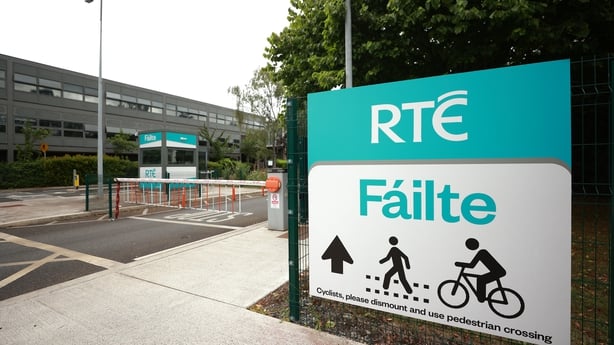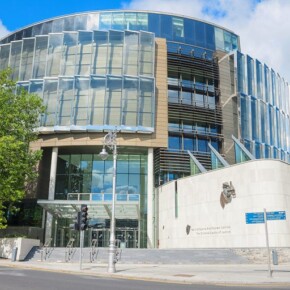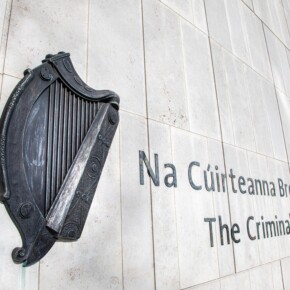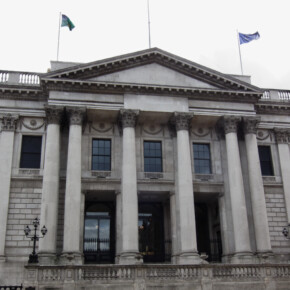RTÉ cuts are “bleak” says union
Mike Finnerty 23 Nov 2023
The scale of proposed cuts at RTÉ has been criticised by politicians, trade unions and members of the media alike.
Last week, Government announced that €56 million in funding will be allocated to the crisis-ridden broadcaster, which will save it from the financial disaster that RTÉ boss Kevin Bakhurst had warned about.
In a recent interview, Bakhurst said that RTÉ faced the prospect of being insolvent by Spring if it did not receive urgent Government funding.
However, the new round of funding appears to be part of a Faustian bargain between Montrose and Leinster House.
As part of cost-saving measures at RTÉ, 400 jobs are to go by 2028, a partial or full sale of the Donnybrook campus is being floated, and sharply increase the amount of money spent on independent productions as opposed to producing content in-house.
The scale of the cuts has caused significant controversy, with the National Union of Journalists calling the proposed job losses “bleak.”
As part of the cuts, 20% of staff will be let go by 2028, which unions say will put pressure on staff that are already short-staffed and overworked following a previous round of voluntary redundancies at RTÉ.
It is understood that staff at RTÉ found out about the potential job losses via an Irish Times article last Monday, prior to being told officially by management.
Cearbhall Ó Síocháin, secretary of the RTÉ Trade Union Group, said that the leaking of the announcement came as a “punch gut” to staff.
“The implications here is that staff are picking up the tab for poor governance and bad management by those who’ve walked away on big money,” he said.
Secretary of the Irish branch of the NUJ, Seamus Dooley, said “against the backdrop of an investigation into the last Voluntary Redundancy Programme, staff will be very sceptical about a new programme.”
“Staff will want an assurance that there is a genuine, sustainable long-term plan based on clearly defined objectives than a set of announcements aimed at securing Government support for short-term funding.”
“It is vital the government provides clarity on long-term funding for public service broadcasting,” and has accused RTÉ of lacking urgency on the issue.
“RTÉ workers are now being asked to pay the price for poor corporate governance and lack of political direction,” he said.
Chair of the NUJ Dublin Broadcasting Branch Emma O Kelly described the proposals as “bleak”.
Labour Senator Marie Sherlock said the proposed cuts amount to a “hollowing out” of RTÉ.
“What has been published should send alarm bells ringing in Leinster House. Is this Government about to stand over the utter hollowing out of RTÉ?”
“The cuts announced are chilling. What we need to understand now is how RTÉ will be able to continue with its mandate to provide public service broadcasting on a shoestring budget?”
“There are more questions than answers now in regards to the strategy management appears to be taking.”
“It is the staff of RTÉ, workers like producers, reporters, and camerapeople, who are the lynchpin of the organisation. Reducing RTÉ’s workforce by one-fifth is going to pose extraordinary operational challenges for the broadcaster,” she said.
Sherlock said that TV licence payers have a right to know how the national broadcaster will be funded, what will be prioritised and how RTÉ plans to save itself from extinction.
“Government cannot be a passive bystander in this, this is a crucial moment in RTÉ’s history.”
Revenue at the Southside outfit has declined substantially since the payment scandal developed in late June.
TV licence fee renewals were down 31% nationwide compared to renewals between January and October of last year, which translates to €21 million in lost revenue.
Minister Catherine Martin has urged people to pay their licence fee, but the appeal may fall on deaf ears, as by her own admission she told an Oireachtas committee in October that trust between the public and RTÉ has been “shattered.”
“It is not only required by law, it underpins vibrant public service content which is of critical importance to our democracy and society,” Martin said.











